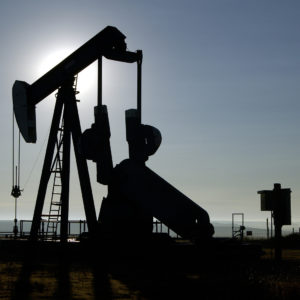The growth of American energy production in the last decade has been a remarkable success of technology and innovation. Already its impacts on the economy and national and international politics are clear. If production continues to grow, America is on track to being one of the world’s largest producers. To achieve that goal, however, will require effective regulation as much as new technology. Regulatory policy is particularly important given the continuing debate over the environmental and health impacts of fracking. According to a recent report, state regulatory agencies have been doing a good job handling industry needs while protecting groundwater.
A report by the Ground Water Protection Council (GWPC), the association of state agencies dedicated to groundwater conservation provides evidence of the strength of state level regulation, which allows for both environmental protection and energy development.
“State oil and gas regulators place great emphasis on protecting water resources from adverse impacts that can occur during oil and natural gas exploration and production (E&P) activities,” says GWPC Executive Director Michel Paque. “The GWPC believes that regulation of oil and gas field activities is managed best at the state level where regional and local conditions and best applied practices are understood, and where regulations can be tailored to fit those conditions.”
According to the GWPC, “in the vast majority of instances,” state oil and gas boards have “the greatest experience, knowledge, and information necessary to regulate effectively.”
The report demonstrates the importance of sound regulatory practices and programs in addition to laws and regulations. These programs are how states promote the consistent implementation, coordination, and enforcement of state rules. Since 2015, state agencies have finalized more than 100 groundwater-related rulemakings affecting oil and natural gas exploration and production, as part of an ever-continuing process of regulatory updating. This allows state regulators to react to industry changes and to learn from past problems.
“Efforts to develop best management practices, technical guidance, and model frameworks such as those undertaken by organizations like the American Petroleum Institute, Environmental Defense Fund, and others have led to improvements in regulatory programs resulting in increased environmental protection,” the report stated. It went on to describe how the GWPC, in conjunction with the Interstate Oil and Gas Compact Commission, formed the State Oil and Gas Regulatory Exchange to provide peer assessments of state energy regulations.
This program offers training for state regulators and provides analysis of state regulations to help ensure that industry rules are consistent across the country. For hydraulic fracking, which is a newer technology, this has allowed states to compile a registry of chemicals used in the fracking process, giving the public access to more information about what is going on in their neighborhoods. In addition, state regulations can help ensure that wells are designed to prevent fracking fluids from coming into contact with groundwater.
“The primary mode of regulating hydraulic fracturing involves the application of well construction requirements designed to seal the wellbore and prevent the movement of fluids into groundwater,” the report says.
According to the GWPC, state regulations are sufficient to preserve groundwater quality while allowing for fracking. Despite numerous studies showing that hydraulic fracturing does not lead to groundwater contamination, concerns about benzene or other pollutants filtering into drinking water remain. In fact, the GWPC defended the use of horizontal directional drilling, saying that given the risk associated with drilling multiple vertical wells to access the same reserves, the “alternative is neither environmentally desirable nor economically viable.”
This points out one of the largest benefits of a state-based regulatory approach, namely its flexibility. Oil and natural gas production techniques vary widely across the country as a result of differences in geology. Concerns about fracking, which are commonplace in North Dakota, for instance, are essentially unheard of in Alaska. Keeping regulation at a lower level of government helps to ensure that regulation is effective without becoming burdensome.
“Considering the complexity of development and the unique geologies across the county, this report makes clear the fact that states are best equipped to oversee oil and gas operations,” says “Attempting to take a one-size-fits-all approach to regulation from a federal level would not only be misguided, but also ineffective.”

